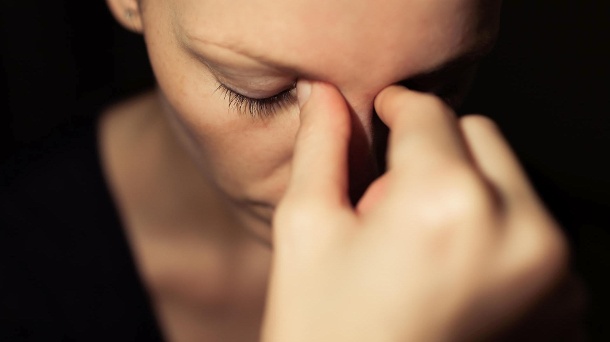
When Miriam experiences her first panic attack, she is in the cellar and wants to get some potatoes for dinner. The force of the attack hits her completely unprepared. “The fear is like a wave spilling over me,” she recalls. “I could not think and do anything, I just had that panic in me.” What happens during a panic attack in the body.
Miriam huddles on the floor. Her heart is racing, sweat is on her forehead, she is trembling. For many minutes she lies on the cold basement floor. “I felt totally helpless, everything in me was scared, it was bad.” From then on, the 48-year-old repeatedly attacked panic attacks. At some point she can not stand it anymore and seeks help.
Constant stress at work can trigger a panic attack
Miriam goes to a neurologist and a psychotherapist. Soon it is clear: Miriam suffers from an anxiety disorder – triggered by permanent stress and excessive demands in the profession. “I was on sick leave for many weeks, it was a hard time, but talking to my psychotherapist was a great help and helped a lot,” she says.
As she is getting better, she is professionally oriented. Since then she is fine. She has no more panic attacks. “The last attack is over four years ago and I really hope that I will never have to experience it again.”
What Miriam has experienced is not uncommon. “It is quite common for extremely stressful phases, such as those at work, to trigger a panic attack, which, among other things, is the result of emotional overstrain,” explains Drs. Christa Roth-Sackenheim, Chair of the Professional Association of German Psychiatrists. “In addition, the threshold for mental symptoms decreases when we are stressed for a long time, and fears often increase.”
Panic Attack: The body switches to escape mode
But why does the body emit such extreme stress signals that many sufferers believe they have a heart attack or die? “In a panic attack, the body unwinds be genetically anchored ‘survival program’ from. The body adjusts to escape or fight and distributes the stress hormones cortisol, epinephrine and norepinephrine,” says the specialist for P sychiatrie and psychotherapy.
Not only blood pressure and heart rate rise, but also the blood sugar, in order to provide the necessary energy basis for the expected muscle work. At the same time the blood circulation of the muscles increases. The breathing becomes flatter and the intestinal activity is throttled.
An estimated eleven percent of the population experience a panic attack once in their life as part of an anxiety disorder. How often the attacks occur is difficult to say, as many people, such as shame, seek no help, according to the expert. An attack can last up to half an hour.
Panic attacks are originally the constant threat of threat
While normal anxiety and panic are genetically anchored and evolutionarily acquired survival instincts that occur in real dangerous or threatening situations, the pathological panic attack is even when there is no danger.
“Panic attacks can occur without triggers or they show up in actually harmless situations that are perceived as threatening by those affected for various reasons,” explains Roth-Sackenheim. “While a healthy person, who misjudges a situation as threatening, calms down quickly, the feeling of being threatened by an anxiety sufferer can lead to a panic attack at any time.”
Often there are biographical triggers. Some sufferers, for example, have developed severe illness fears because, for example, they saw a close relative suddenly die at a family party. Others got stuck in an elevator and perceived this moment as extremely scary. Then tight spaces can trigger panic attacks.
It is even possible that the fear of the panic attack alone leads to this. The predisposition for a generalized anxiety disorder can also be inherited.
Panic attacks are associated with the feeling of loss of control
“Those affected always describe the panic attack as a feeling of loss of control,” says Roth-Sackenheim. Some are convinced that they are about to fall dead, because their heart beats so hard and it feels like the air stays away. Others feel helpless and at the mercy of others.
Most feel the strong desire to escape from this oppressive situation. “The moment of the attack is always perceived as very threatening,” says the psychiatrist and advises those affected to seek help if the panic attacks occur more frequently and limit the quality of life.

